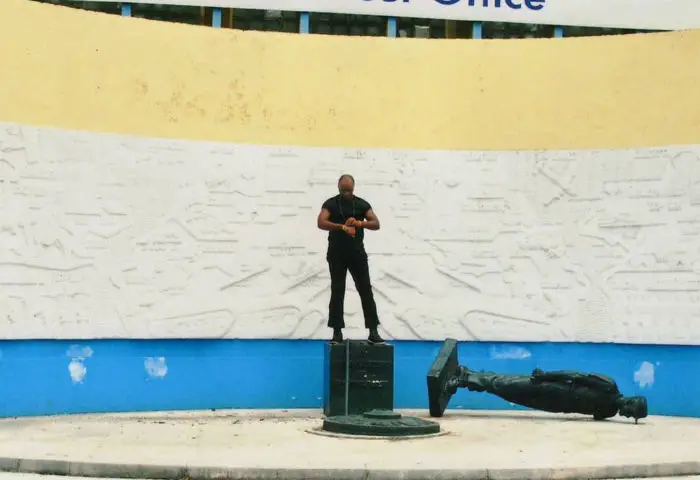What is Colonialism?
A popular African History blogger, Armel Mongkuo, once said it was easier to count the countries that were never colonized with the tips of one’s fingers. This meant that colonialism can, without doubt, be said to be the most common experience shared by the people of Africa and the world at large. While others have struggled to define the term to satisfy their demands, we, for the purpose of this brief article, can define colonialism to be the domination of a people or area by a foreign nation or entity. It is the subjugation of (usually) a less powerful group of people to a more powerful entity, with the latter in total control over its subjects.
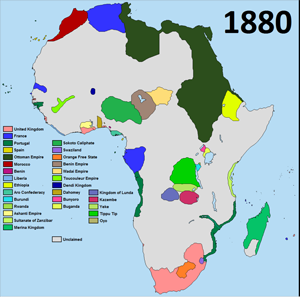
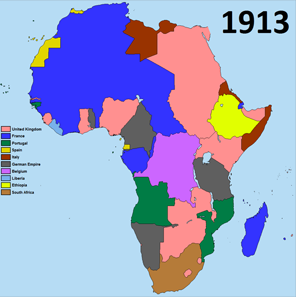
The word colonialism shares the same meaning as imperialism and expansionism, and in the case of Africa and Cameroon in particular, we can add, as a matter of fact, that it meant a total transformation of every aspect of the colonies’ politics, religion, culture, and even status.
Brief Evolution of African Colonization
The history and origins of colonialism date as far back as the founding of the colonies in antiquity. However, modern colonialism commenced during the 15th century with Portugal being the first European state to go insearch of colonies outside Europe. In 1415, Portuguese explorers conquered Ceuta, a tiny islet along the coast of North Africa, kicking off an empire that would last until 1999. This period was referred to, as the Age of Discovery, wherein Spain and Portugal alongside European colonizers began to go in search of colonies in the Americas, Asia, and Africa, leading to the period of the Trans-Atlantic Slave Trade which officially came to an end in 1807 when Britain, supported by Spain signed the Abolition of Slave Trade Act. This however provided the colonizers with a different and more possible raison d’etre of colonizing African territories- the quest for resources, power, and other gains, which was made easy by the dividing of Africa by these colonizers during the pivotal 1884-1885 Berlin West African Conference. Also known as the Congo Conference, the Berlin Conference laid the foundations and set the stage for the conquest and partition of African territories by colonial masters.
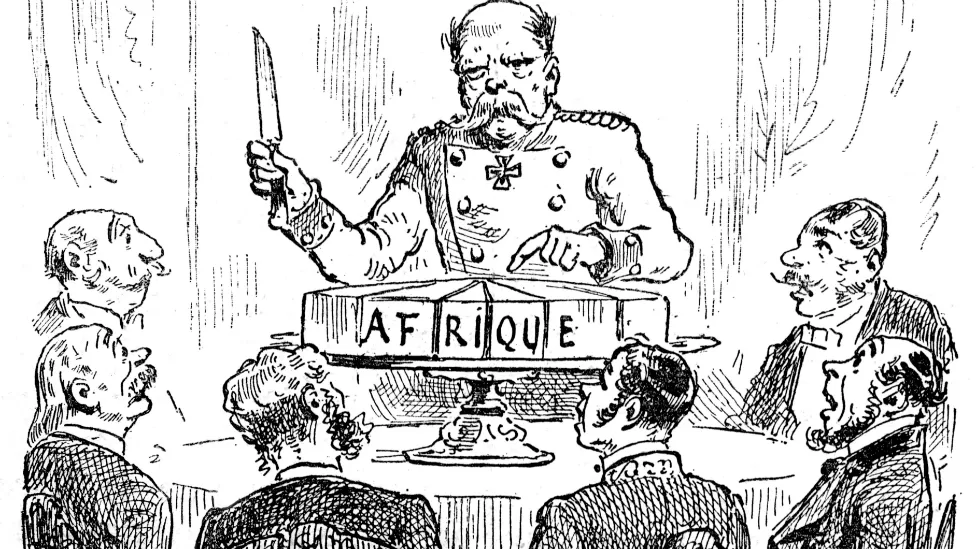
Since the Berlin West Africa Conference, both colonizer and colonized have been of great advantage to each other, until they were not, (although the colonized were often coerced into assuming these functions). For instance, locals served as fighters on the side of their colonial masters during the World Wars that were also extended into African colonies (as they were considered (when convenient to the colonizers) as an extension of their territories in Europe). Locals also served as spies that aided the operations of the colonial masters and everything else that projected the popularity of the colonial master(s). In most cases where the people resisted the rulership and dominance of these colonial masters, it was because they were made victims of a series of massacres, all forms of injustices, and were forcefully subjected to exploitation, forced labor, genocides, illegal collection, and possession of African cultural heritage and a host of other disadvantages which were tremendously magnified in almost all cases of crushing resistance.
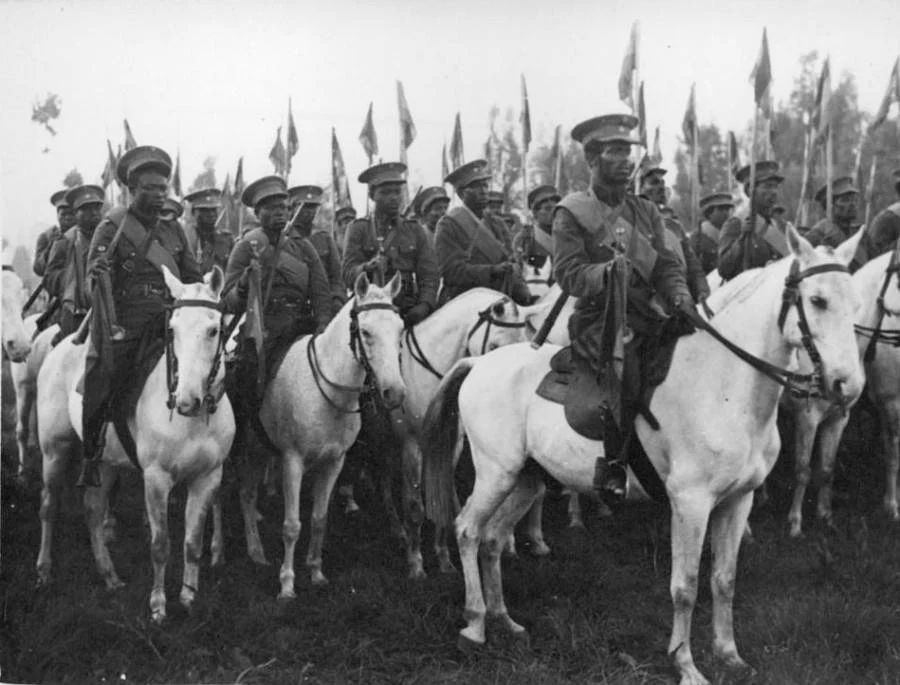
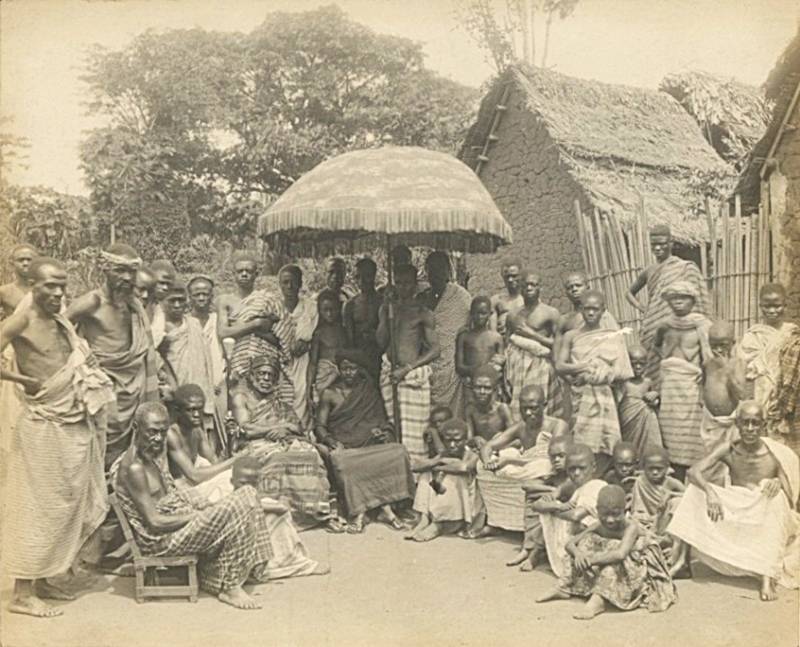
In this article, we shall briefly be examining the journey of colonial resistance in contemporary Cameroon, through the lens of the Cameroonian anti-colonial activist- Andre Blaise Essama.
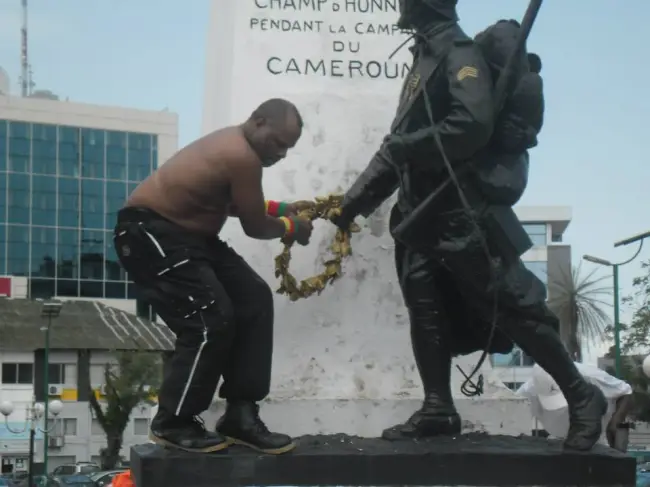
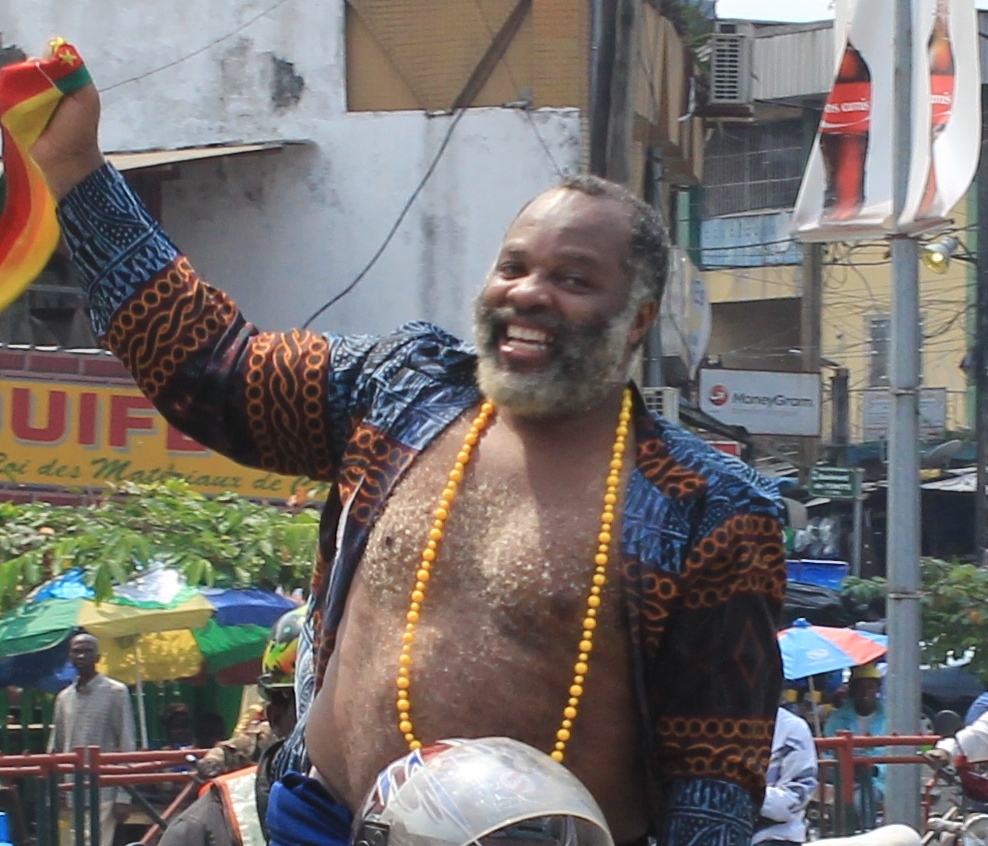
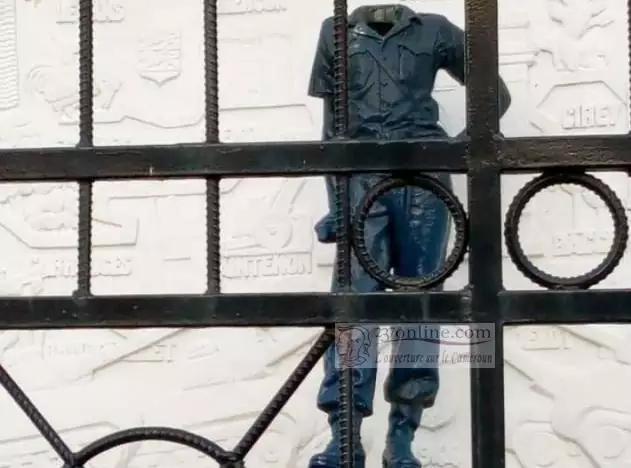
Andre Blaise Essama is an anti-colonial activist born and raised in Cameroon. A good way to describe Essama tearing down the monument of former colonial masters in Douala- Picture Source Andre will be, to call him a man on a mission. Many sources affirm the fact that he has been actively campaigning against colonialism for decades now, through the destruction of colonial symbols. He is particularly known for the tearing down of monuments and sculptures of former colonial masters in public places (squares, markets, etc.) in the economic capital city of Douala, Littoral Region of Cameroon. He is also known for leading an anti- colonialism campaign through the street lectures he offers followers of his movement (fondly known as “Hoo-Haa”, educating them on the ills of colonialism and other related concepts. Several interviews with Andre Blaise record him stressing his reasons why and the importance thereof dismantling statutes of former colonial “heroes” from public spaces within Cameroon, which to be honest is quite simple and watertight. To him, the sculptures mounted in public spaces should be those of local heroes who fought for the independence of Cameroon or heroes who continue to put Cameroon on the global map, heroes who through their work, give hope to especially the young Cameroonians. Andre is particularly very popular among young people in the city of Douala who often rally behind him as he leads peaceful street protests.
Not only does he limits himself and his movement to the dismounting of colonialists monuments in Cameroon, he is also concerned about renaming the streets named after colonial masters, within the city of Douala. Essama is also said to have a collection of sculpted Cameroonian Independence fighters such as John Ngu Foncha and Ruben Um Nyobe alongside those of local heroes like Samuel Mbappe Leppe, the former Indomitable Lion.
The “Hoo-Haa” activist movement that started more than a decade ago, has many times been frowned upon by forces of law and order in the city of Douala. This has resulted in a series of more than 6 arrests and fine payments levied on Essama. In July 2016, André Blaise Essama was sentenced to six months in prison and a fine of 2 million CFA francs. He was accused of “destruction of the public property and vandalism,” after breaking down and decapitating the statue of General Leclerc. It is worthy of note, the fact that this was not the first time he was arrested or charged with crimes of vandalism. In public spaces where he mounted the statutes of popular Cameroonian independence fighters like John Ngu Foncha, they were dismounted and taken down which caused unrest in the young followers of Essama’s anti-colonial movement. They expressed their frustration at the fact that the police can dismount and take down the monument of a Cameroonian who fought for independence, but find little or nothing wrong with displaying the monuments of foreign colonial masters. These supporters who are made of both the local and international committee have been said to have mobilized resources that funded the fines levied on him and also advocated for his release on social platforms like Facebook where he has a huge and active following of approximately 14,000 followers. Essama is also internationally recognized by the Committee to protect Journalists.
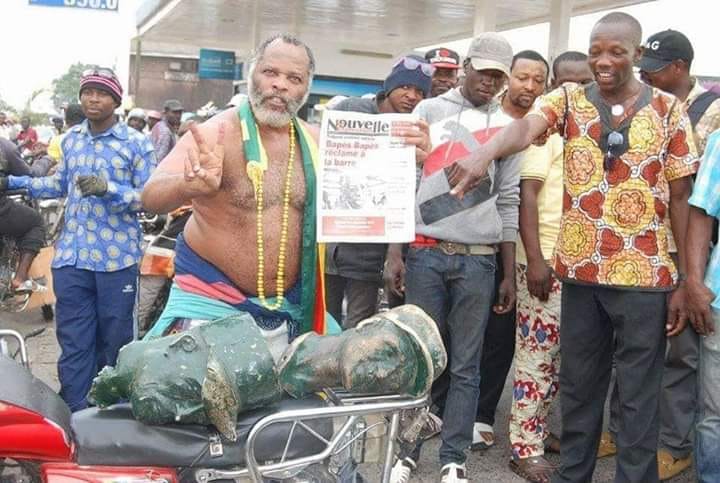

The case of Andre Blaise Essame highlights the ongoing struggle for complete independence from the shackles of colonialism that still exist to date in Cameroon. His courage and dedication serve as an inspiration to many who continue to fight against colonial oppression in the country and even in other parts of Africa. It is tempting to think that Africa which was previewed by Wilbur Smith when he said “I can only use historical reality to come to a view of the future, and my view is that Africa will return to being African and not European. The advent of colonialism was foreign to the country itself, but it will return to what it was before the Europeans arrived…”, may never come to reality if we continue to fan the flames of colonialism or neo-colonialism- a recent form of colonialism performed on the stage of “friendly” relations with the West and Foreign Aid. The economic relations that these colonialists build on, should be seen for what they really are, mere rubrics used to widen the situational gap between Africa and themselves at the expense of developing Africa.

